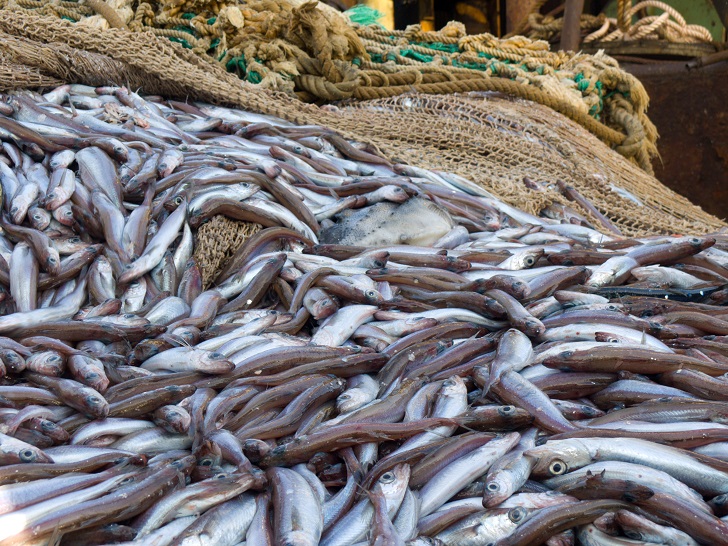
The production of collagen powder requires the handling of fish skins which are elastic and extremely slippery. A combination of a high-performance twin shaft macerator and a hygienic full-metal rotary lobe pump from NETZSCH Pumps & Systems provided the answer.
Fish is not just one of the staple foods in all the world's coastal regions, its high-quality constituents, from omega 3 fatty acids to iodine, mean it is also becoming a significant component of a healthy diet worldwide. On the other hand, most of the residues are disposed of or processed into cheap animal feed, although the skins do for instance contain valuable proteins.
In addition to fillet production, Vinh Hoan Corp., one of the largest pangasius exporters in Vietnam, has therefore built up its own production line for collagen powder. The powder is now used in food supplements, cosmetics and pharmaceuticals. For this, NETZSCH Pumps & Systems supplied a combination of a high-performance twin shaft macerator and a hygienic full-metal rotary lobe pump.
Collagen powder Vinh Hoan Corp., based in the Mekong-Delta, is one of the main global suppliers of pangasius, which is native to the region, and the company deals with customers in around 40 countries. A key product is collagen powder with the brand name Amigen.
The powder is produced by enzymatic hydrolysis from the pangasius skins derived from the production of fillets for the global market. The fish skins are around 18 cm long, depending on the age of the fish, and also elastic and extremely slippery due to the humid environment, so the company needed suitable pump technology in order to be able to transport them for processing.
Netzsch, the German specialist, set up a hygienic solution for this in 2015 using closed pipes and a pump, which prevents contamination of the raw material and at the same time ensures cleanliness in the production environment.
An issue of the application was that the fish skins are mixed with hot water in an 80:20 ratio and come into the macerator at a pressure of around 2 bar, which means they are moving very fast and there is a risk that unprocessed parts might slip through. A twin shaft macerator was therefore used, as its speed can be adjusted to the flow of the difficult medium mixture to achieve an ideal result in terms of cutting.
Lump media The macerated pieces of skin flow out of the macerator directly into a T.Proc® rotary lobe pump which handles further conveyance. The pump, which is part of the Tornado® T2 series from Netzsch, is particularly recommended for very lumpy media due to its large free ball passage. Even with coarse pieces of skin, which might have slipped through the macerator due to their slippery consistency, the pump can easily cope without any risk of clogging.
Instead of complex helical and multiple lobes which are more prone to defects and harder to clean or maintain, there are two smooth bi-lobe rotors installed which rotate in opposite directions and continuously convey the medium from the inlet to the discharge side. This design leaves a lot of space for the solid loaded fluid and at the same time enables the rotary lobes to be removed individually, and easily in case of maintenance.
Belt-drive The front of the pump can easily be removed for any maintenance work, enabling access to the whole interior. It is also just as easy to remove the rear covering to access the drive.
The pump operates here, just like all T2 pumps from Netzsch, using a belt drive with teeth on both sides, which firstly transmits the torque from the motor to the shafts and secondly synchronises the rotation of the shafts, along with the rotary lobes.For easy cleaning and sterilisation, as well as to improve food safety, an all-metal version of the rotary lobe pump was installed at Vinh Hoan.






